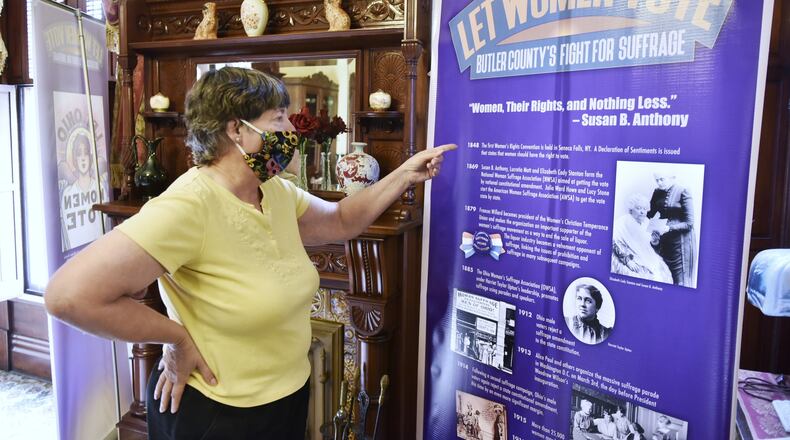Butler County historians are taking steps to chronicle those events so they can be properly preserved for future researchers. Since there are fewer printed newspapers and magazines, most pictures are shot on cell phones and rarely developed into photographs, and emails have replaced hand-written letters, historians worry about the eventual historical accuracy of today’s headlines.
“The archiving of history is a big concern,” said Sam Ashworth, a Middletown historian. “If the printed newspaper and digital newspaper are not preserved how can historians put together accurate accounts of this time?”
Kathy Creighton, director of the Butler County Historical Society, agreed: “If you don’t have hard copies it’s not permanently preserved. You need the hard copies to get a feeling what’s going on.”
To help local schools, historic organizations, libraries and museums archive today’s events, the W.E. Smith Family Charitable Trust is accepting applications for funding of historical proposals.
Established by a bequest from the estate of the late Ophia Smith, the charitable trust awards grants that “promote and encourage” interest in regional history and support historical research and publication, Sollmann said.
On Tuesday, Ashworth said he was reading, “Reaganland: America’s Right Turn 1976-1980,” a gift his stepdaughter. While Ashworth lived through that period of American history, he said: “There’s still a lot to be learned. You need to know how we got to where we are today.”
He just finished reading a biography of Ulysses S. Grant, the 18th president of the United States from 1869 to 1877. Part of the book touches on discrimination and racism, two hot-button topics in 2020.
“Many of the issues lay under the surface for years, then they manifest themselves in a particular event that happens today,” Ashworth said.
Creighton said the old adage remains true today: “If you don’t study history you’re bound to repeat it.”
It will be interesting to see how the coronavirus, and the world’s reaction to the virus is viewed years from now, she said.
“In 10 years, will they say, ’It wasn’t a big deal.’ We don’t know right now,” she said. “You have to collect all the information so it’s there 10, 20 or 100 years from now.”
HOW TO APPLY FOR GRANT
Applications must include sponsorship by a nonprofit beneficiary, such as an historical organization, library, municipality, school, or philanthropic institution. They must include the organization’s nonprofit EIN/Tax ID number. Each request must include an outline of the proposal, the amount requested, the name and address of the person submitting the application and the sponsorship.
Grant applications are available from the Smith Library of Regional History (513) 523-3035 and reference desks of the Lane Public Libraries in Hamilton, Fairfield and Oxford; or by contacting: W.E. Smith Family Charitable Trust, First Financial Center, 255 E. 5th St. Suite 800, Cincinnati, 45202.
About the Author


